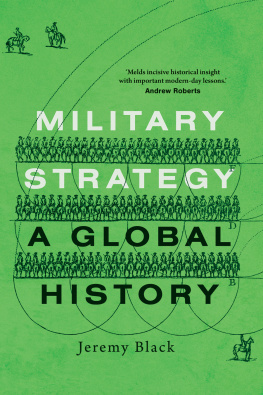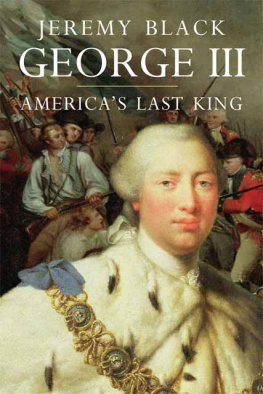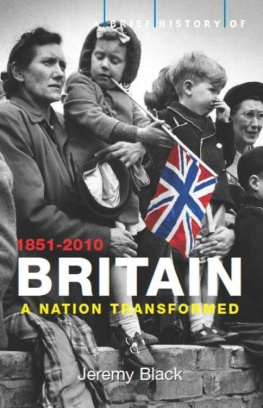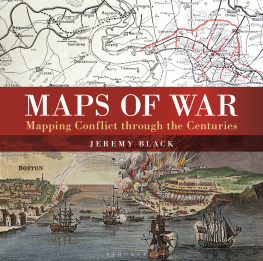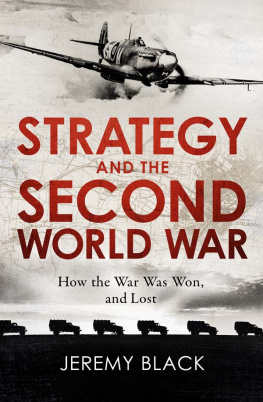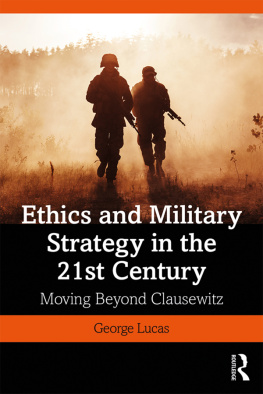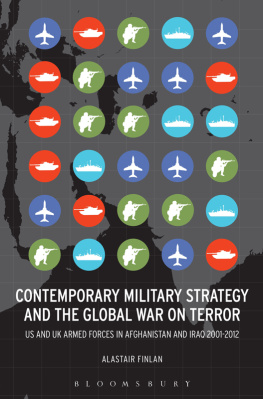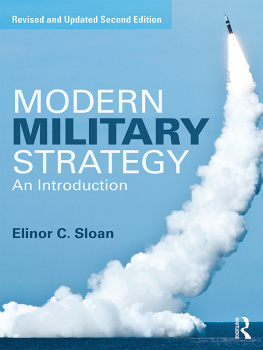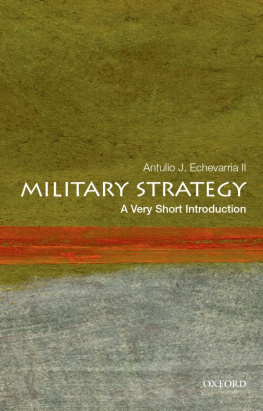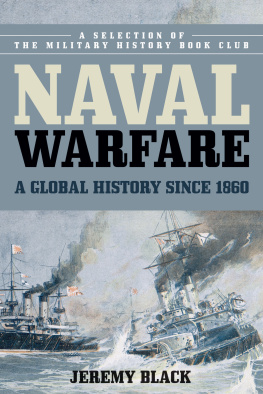MILITARY STRATEGY

Copyright 2020 Jeremy Black
All rights reserved. This book may not be reproduced in whole or in part, in any form (beyond that copying permitted by Sections 107 and 108 of the U.S. Copyright Law and except by reviewers for the public press) without written permission from the publishers.
For information about this and other Yale University Press publications, please contact:
U.S. Office:
Europe Office:
Set in Adobe Garamond Pro by IDSUK (DataConnection) Ltd
Printed in Great Britain by TJ International Ltd, Padstow, Cornwall
Library of Congress Control Number: 2019948676
ISBN 978-0-300-21718-6
A catalogue record for this book is available from the British Library.
10 9 8 7 6 5 4 3 2 1
For Steve Bodger
CONTENTS
PREFACE
Strategy, an overarching vision of what an organisation or individual wants to achieve, coupled with a set of objectives designed to make that possible, is not the details of the plans by which goals are implemented by military means. Instead, strategy is the ways by which nations, states, rulers, lites and others seek to shape their situation, producing international and domestic systems and pursuing outcomes that provide security, and that safeguard and advance interests. The key element and the crucial context are the contest for power, and at every level. This is the case for strategy as both goals and means, and indeed for strategy in both goals and means. These are phenomena that in practice, despite efforts to dissect them for analytical purposes, are rarely as separate as envisaged. Moreover, power takes different forms, has varied uses, and is not understood in a uniform fashion. This is true of the character and use of military power as well as of other types of power.
In assessing strategy and strategic culture, it is necessary, if focusing solely on military strategy, to consider how states, or rather their lites and leaderships, seeking to maintain and increase power, pursue internal as well as external agendas, and do so knowing that it will make them better able to obtain goals and to wage war. The relationship between the two agendas, internal and external, is important and also affects both. They cannot be readily separated.
Linked to this were (and are) the perennial questions of who directed strategy (however defined), and to what ends. The latter question affects the evaluation of both competence and success. Indeed, any strategy is contingent on complex contexts, both international and domestic, short- and long-term, and has no optimum dimensions. Moreover, the people who direct strategy are not always the same as those who evaluate its success. One of the major problems in executing strategy is for decision-makers at that level to convince those who frame the criteria of success that they are doing the right thing, and doing it well.
Any focus on ruling individuals and groups helps explain why the later matrix frequently adopted for military strategy, that of the general staffs which developed from the late nineteenth century, a matrix that helped drive the process of defining strategy, is not, however, readily, or sensibly, applicable to much of history; and, as a separate issue, possibly not so today either. A focus not on general staffs but, instead, on the (royal) court context of the long earlier period of human history ironically also directs attention to reconsidering strategy during the last quarter-millennium, the period when the word has been used and the concept developed. In particular, leaders over the last quarter-millennium, including to the present, frequently operated in a fashion that would not have been out of character or, indeed, context for their predecessors who presided over these courts.
Thus, there are elements of decision-making under Napoleon, Hitler, Putin and Trump that would not have been totally out of place for Louis XIV of France (r. 16431715). In many cases, irrespective of whether the comparison across time was longer or shorter, it was deliberately sought, as with Benito Mussolini, Italys Fascist dictator from 1922 to 1943, and his repeated attempt to strike a resonance using explicit reference to the founding Roman emperor, Augustus Caesar, who ruled nineteen centuries earlier. This continuity is more especially the case if the focus is on strategic culture or strategic process, rather than strategic content (especially in the case of specific military means) or the broader international context.
In particular, there is the question of how far gloire, the search for prestige, and the use of the resulting reputation to secure international and domestic goals, are, while important for all, especially attractive and important in monarchical or pseudo-monarchical systems, indeed providing them in many respects with their prime strategic purpose, tone and drive. This approach towards strategy understandably works in a diachronic fashion, in other words across time, however much the latter approach may appear surprising in a subject, military history, that focuses so much on technological change and thus the immediate context, with time as non-diachronic. An emphasis on the value of prestige and reputation adopts a cultural functionalism based on their value that is linked to a psychological approach to image and competition. In part, a competition for prestige can enhance all the powers involved. More commonly, however, the competition was necessarily at the expense of other powers, and was very much desired and affirmed in these terms. This situation has continued to the present.
The rhetorical character that is part of strategys essentially political nature should also attract attention. Separately, so also should the frequent fluidity of strategy, or rather of the alliances involved, and, in contrast, the fixedness of particular plans. Focusing on the latter, and on their genesis, can lead to an underplaying of the former. Conversely, plans can change more rapidly. None of these characteristics, however, necessarily appeals to those seeking a science of strategy and/or a set of lessons that allegedly can be readily learned, and the teaching of which provides them with point, position and profit.
Strategy is a term much debated now and in recent years. Indeed, in the West, helping both to provoke and to focus or refocus this debate, there is a sense that strategy is in some way a lost art, and there is a much-repeated argument to that effect. This sense reflects a crisis of confidence, notably in Britain but also in the United States, as a result of repeated setbacks, or at least serious difficulties, for Western forces in Iraq and Afghanistan in the 2000s and 2010s, and the linked problems for Western goals. The rhetoric and associated disquiet about absent or flawed strategy, and about a confusion of policy and strategy, rose even more in the mid- and late 2010s. This was specifically in response to the general imbroglio concerning Western policy towards Syria and, indeed, the Middle East as a whole. The House of Commons Foreign Affairs Committee referred in 2016 to the failure to develop a coherent Libya strategy. In part, there is the loss of the ability to determine and maintain plausible goals, which then leads to an inability to formulate effective strategy, let alone the problems with individual strategies.
The rhetoric and disquiet about strategy also reflected a more general concern in the West in the 2000s and 2010s about drift. This was drift in the case of the conception and implementation of what was variously described as policy and strategy, and that referred, variously, to goals and implementation. The confused and largely unsuccessful response to Chinese and Russian assertion and expansionism was an aspect of this disquiet. Anxiety about President Donald Trumps attitudes and policies, notably his hostility to multilateralism and to many of the institutions involved, including NATO (the North Atlantic Treaty Organization) and the WTO (World Trade Organization), was a major issue in 201719. Earlier, there had been very different, but nevertheless also pressing and repeated anxieties about the strategic grasp of presidents Bill Clinton (19932001), George W. Bush (20019) and Barack Obama (200917), anxieties that tended to be forgotten when the focus was on President Trump.
Next page
